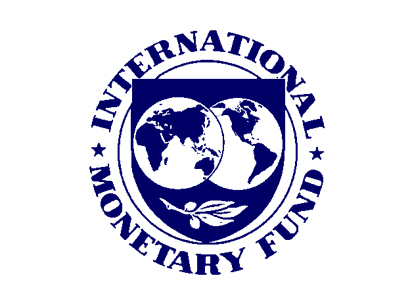Turkmenistan, Ashgabat, June 22 / Trend. Trend H. Hasanov /
Recent economic performance has remained strong as a result of continued high levels of public spending and increases in hydrocarbon production, according to the report adopted by the mission of the International Monetary Fund (IMF) headed by Veronica Bacalu that has recently visited Ashgabat in the framework of ongoing consultations.
The IMF team met with senior central bank and government officials, and representatives of commercial banks and international institutions.
In 2012, the country recorded a second straight year of double-digit real GDP growth at around 11 percent, and non-hydrocarbon growth was nearly 12 percent, IMF reported.
The external current account was broadly in balance (down from a surplus of 2 percent of GDP in 2011) as growth in imports (of investment goods in particular) outpaced the growth in exports.
IMF also noted that Inflation increased to 7.8 percent year-on-year at end-2012 (from 5.6 percent at end-2011) reflecting welcome administrative price increases for some food and transportation services in the second half of 2012 aimed at achieving cost recovery.
In 2013-14, real GDP growth and the external position are projected to remain strong and inflation is expected to decline.
The report says that "a sharp decline in global hydrocarbon prices is the key risk to the outlook, though the increased geographical diversification of Turkmenistan's gas export markets and high external buffers are mitigating factors".
The authorities should pursue a prudent fiscal policy consistent with absorptive capacity constraints and supported by improved management of the vast hydrocarbon resources.
"While fiscal sustainability, even in the event of much lower hydrocarbon prices, is not a concern, reining in investment spending should proceed as planned to avoid inflationary pressures," IMF says.
IMF also noted that future fiscal policy decisions need to be grounded on price-based rules and structural fiscal targets, which will help insulate public expenditure from hydrocarbon price volatility.
Also, expanding public finance coverage to include the extrabudgetary activities in line with best international practice regarding sovereign wealth funds would be a positive step.
The authorities need to begin building capacity to introduce greater exchange rate flexibility in the longer term.
Promoting an effective monetary policy and financial sector development by eliminating directed lending and liberalizing interest rates is key.
While the exchange rate peg continues to be appropriate as an anchor for monetary policy, it limits the ability of the economy to absorb shocks, accordin to the report.
Bold reforms of the state-owned financial sector are needed to further develop private financial intermediation. Introducing corporate governance standards in banks, improving banking supervision, and strengthening risk management practices are also essential.
Developing a dynamic private sector as envisaged in the National Development Program for 2011-30 will require improving governance and the business climate and increasing the role of the private sector in the economy," according to the report.
IMF emphasized that gains in competitiveness could be achieved by reforms aimed at improving the regulatory environment and reducing opportunities for corruption.
In addition, easing foreign exchange controls and following through with recently announced WTO accession plans would help facilitate trade.
The ongoing efforts to adhere to international statistics standards are encouraging and should aim at the adherence of Turkmenistan to the IMF General Data Dissemination System.
The Ministry of Finance of Turkmenistan reported recently that in the last five months of 2013 increase in gross domestic product (GDP) was at 9.2 percent.
"As a result of economic reforms, creation of new industries, development of multi-industrial complexes in the regions, modernization of existing production, the share of industry in GDP was 57 percent," the statement said. The share of construction has increased as well, reaching 12.8 percent. The volume of inward investment in various sectors of the economy has increased by 7.3 percent.
In January-May 2012, Turkmenistan's GDP growth was at 10.9 percent.
In January-May this year, the growth rate of oil and gas condensate production in Turkmenistan totaled 101.2 percent compared to 2012, and the plan for production of natural and associated gas was executed at 102 percent.
Turkmenistan occupies one of the key positions in the region in terms of natural gas supplies. Among the importers are Russia, China and Iran. Alongside, the government has adopted a policy of diversification of the economy, developing the oil-and-gas processing industry, textile and cotton processing industry and production of building materials.






